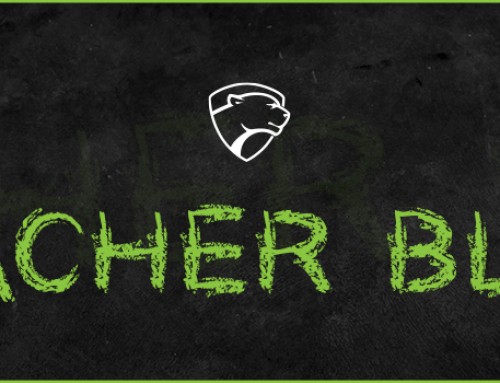It was raining the evening the messenger came; I recall this day. The lake was a canvas, reflecting the surrounding woods and the clouded sky above. The majestic hands of the wind swept across its surface like elongated strokes of a brush. The slight tears the blackened clouds wept splattered the color for a ripple and once more became as it was before. Even on days such as those I swim, just as I do every morning.
It brings me back to memories as a child, when my Pa would say to me, “Catty, yah best come outta that water. Ya’ll turn yourself into a fish if yah stay in there any longer I tell yah. Why, your mama’ll think I got no horse sense when I tell her yah can’t come home cos yah got gills!”
Being the six and half year old I was, I was out of that water so fast my head spun if by chance there was actual truth to his teasing. This ceased to happen as I became older of course; I would simply call the old buzzard’s bluff and tell him to “Go on home and drink that bark juice o’ yours.” Eventually I did not have to tell him to go anymore for a deep sadness consumed Pa just as the fog consumes everything here but the few inches from the face. Nothing could release him nor please him; not even his sons’ first game kills nor his little Catfish could make him smile.
Ma would then take his drink and say, “Go ’n and look at yourself in that mirror yonder; bet ya’ll start laughin’ then.”
Of course, he was fit to be tied the moment she took his drink, her scolding only amplifying his anger further. By the year I turned twelve, the several drinks he had with every meal of the day solely became his meals and the midnight glass of whiskey became the midnight bottle of whiskey. One night, my Pa, as to the norm, drank the contents of what would be his last bottle. The next morning, it was I who found him in his favorite chur, cold and unmoving to my touch, having drowned in his liquor.
I sympathize for that girl nine years ago, not yet a woman, whose slight remnants of innocence were shattered that day. And when my Ma followed thereafter, I was fourteen. I did not feel the grief in which a daughter should feel upon the loss of her mother, only the numbness. Being what it was, she had already been lost to me for quite some time. It wasn’t painful; she simply ceased to be, died of a broken heart my brother Charles would say. It is difficult to say why she gave in just as my father gave in to drink when she hated him for it most out of us all. I do not blame her for her hypocrisy though for in doing so would imply I blame her for loving him which how can I place such blame when I myself loved this coward all the more?
Excitement that seldom traveled to our forlorn cabin for what seemed to be a millennia was by the flicker of a flame my brothers’ constant companion when they found their lead mine. This of course was purely accidental for if it wasn’t for Jackson’s undying need to prove the elder Charles wrong, he would not have agreed to the dare that lead this crippled family to profit.
“Look’t that cliff there, Jack. Can you imagine someone climbin’ that thing? Be Hell.”
“That cliff i’nt nothin’. I can climb that easy.” And if it wasn’t for Jackson’s boasting nature I might add.
“You have yourself a dare, little brother. Climb that cliff there and I’ll tell everyone in town you really din’ wet yourself that one time down at Ol’ Smithy’s,” Charles provoked, “Hell, I’ll throw in a couple dimes to make it so ya’ll actually try.”
And so he did, falling through a crevice near the top thus finding the lead mine. Within the matter of a year my brothers had made, The Miner Brothers Co. We soon relocated to a cabin closer to the mine and the noise leaving our quiet cabin and the death of our parents in the fog by the lake in the woods.
The real profit came when the war started. I was eighteen and a gay aunt to Charles’s children, sister to his wife. The time came when Charles thought his contribution to the war effort needed to be greater, as if providing our soldiers with the lead bullets that ended confederate lives daily wasn’t enough. He joined the war a year after the start with Jackson following on his heels. Elizabeth, his wife, left with the children to live with her mother leaving me to manage business affairs. My brother’s had come a long way since the hair tugging and stealing my dolls for they became my warm sun in the fog. With them gone and no doe-eyed children to distract me, nothing filled the foggy void. The residue the mining created in the air sickened me further which in turn forced me to resort to leaving the mine. And what other place should I go to but the only other home I knew?
I resided in that cabin by the lake for some years. During the time I wasn’t waiting for letters from my brothers, I was down at the lake even when the months grew colder. I found comfort in this lake, floating beneath its surface, perfectly still though eventually the cold and the lack of air would get the best of me, after all I was no fish.
And so it was on that eerie evening he came. The rain had quickened its pace to a much heavier fall, therefore silencing his approach. A knock beckoned me to the door. I opened it to reveal a man in navy uniform and Preacher Tom. I fell to my knees for I knew my brothers, my only sunshine in this life, were no longer.
For these deaths I grieved and still grieve to this very moment. It is constant torment that even now, in the stillness before the dawn and as I make yet another breakfast I shall not touch, never ceases. To try and escape, I walk for many hours and find myself rowing to the middle of the lake. There I stop and I remove my clothing, the wind biting into every inch of bare skin. Rather than take on the frigid water one limb at a time, I throw my body into the gray mass and sink. I am floating beneath the surface, perfectly still just as I have a thousand times before. Only this time I do not come up once the cold begins to take hold of me. In fact, I welcome it freely. I am numb to the pain and better still to the affliction of my loneliness. I gaze up and see the blurred sky, the surrounding trees; the view from here still picturesque.
A familiar voice calls to me from above the water, insisting I get out before I grow gills. I know this to be fictitious just as I knew his bluffs to be. His voice stirs about the young girl in me who yearns for her lost ones. For the longest of times I have wondered why they gave in to their sorrows so willingly, without any refrain but now I know the liquor, the death…the numbness to all be an escape. Through the water, I see the sun peak out from behind the clouds and I reflect on my brothers; did they fight their untimely death or simply give in. But what of me, am I to give in?







Leave A Comment